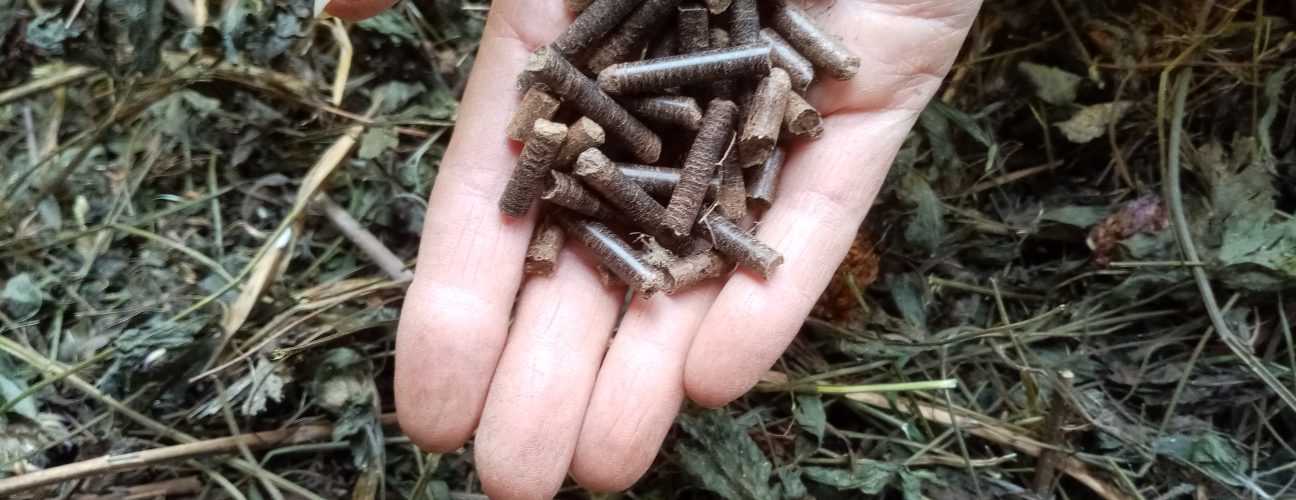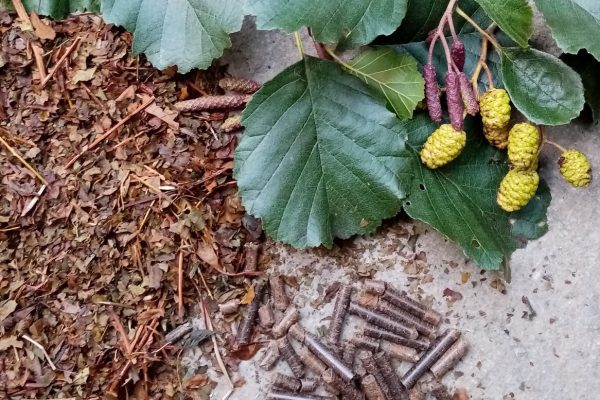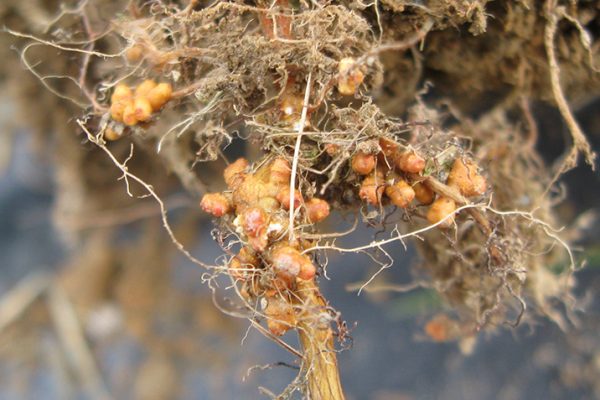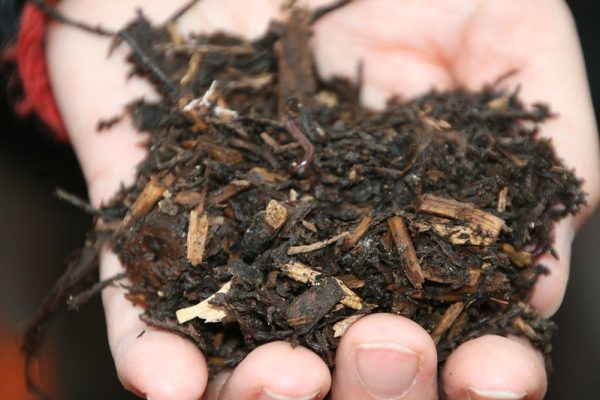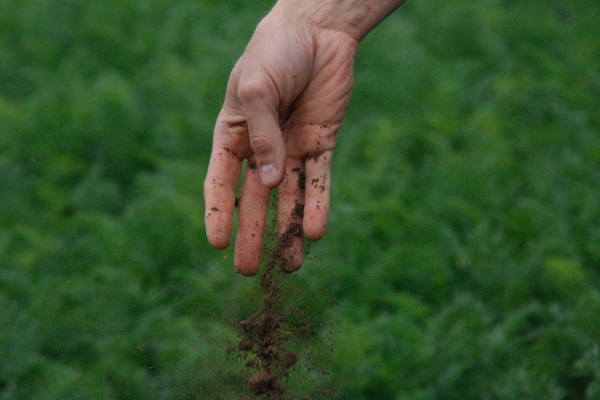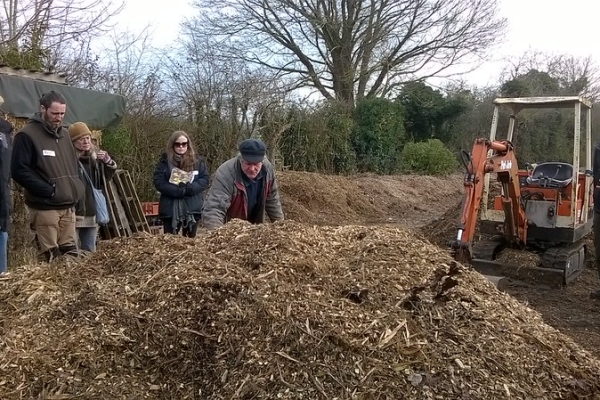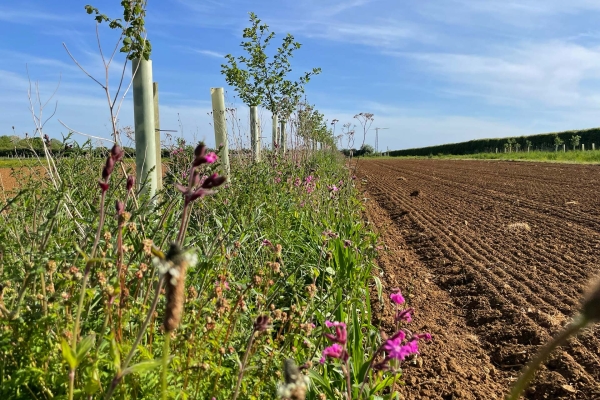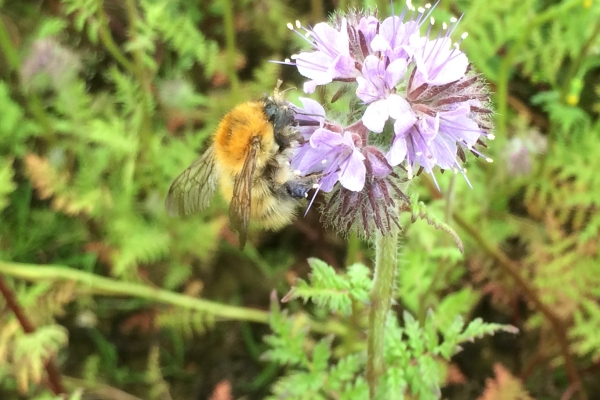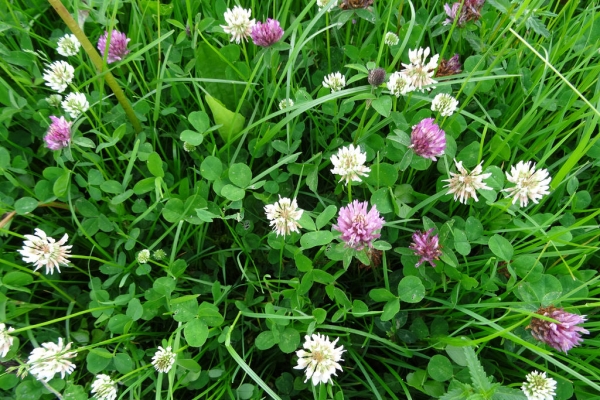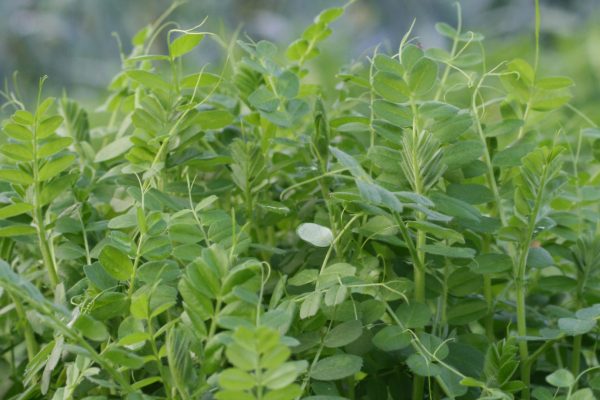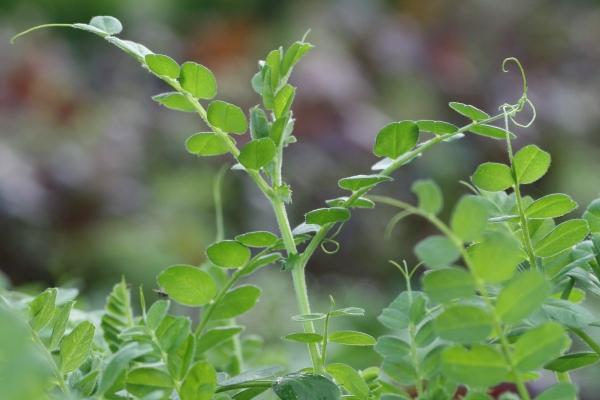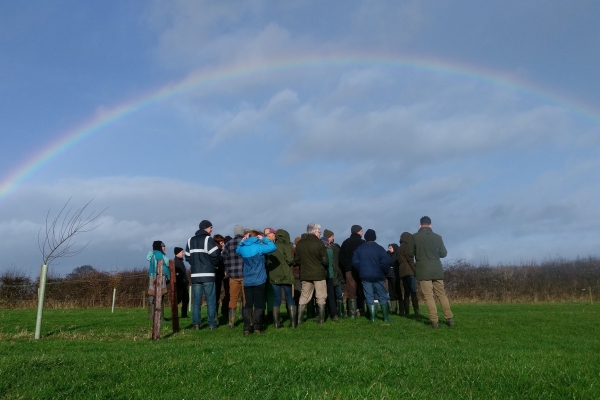Insights from the Perennial Green Manures project
An innovative approach to fertilising cropland
Resource explained
Perennial green manures (PGMs) are plant-based fertilisers made from the harvested foliage of perennial plants, including trees and shrubs grown in what can be termed ‘bioservice
areas’ integrated into farmland. This summary report arises out of a PGM project which ran from May 2022 to July 2024 with five growers in the Dyfi Valley in mid-Wales taking part in trials adding the leaves of PGMs, either fresh, dried or pelleted, alongside their usual methods of fertilising their crops. The report outlines the environmental issues with supplying nitrogen to crops and the ways in which PGMs could address these. Research to date on PGM use is covered, including outcomes of their own trials. Feedback from stakeholders and trialists is presented. The possible implications, obstacles and benefits of growing PGMs at scale are discussed, and areas where further research is needed are clearly laid out.
Findings & recommendations
- Harvesting tree foliage by hand was time-consuming, though leaf separation and application was easier after drying.
- Applying material as pellets is convenient and has potential, but research is needed to improve efficiency, energy needed and associated costs. Growers involved in the trials were keen on producing their own organic fertilisers.
- PGMs were found to increase crop yields over the control, but mostly had lower yields than crops fertilised with (often high amounts) of compost or manures.
- PGMS had different effects according to species used and could be used strategically with regard to macronutrient content to increase crop yields.
- A smaller pot trial found that adding dried leaves (clover) to potting compost increased growth and has potential for use in growing media.
- PGMs could influence root growth for greater drought resistance/nutrient scavenging.
- More research, formal, scientific research, and practical logistical innovations, are needed if the technique is to move from niche to mainstream.
Explore more information and resources on perennial green manures including final report here.
